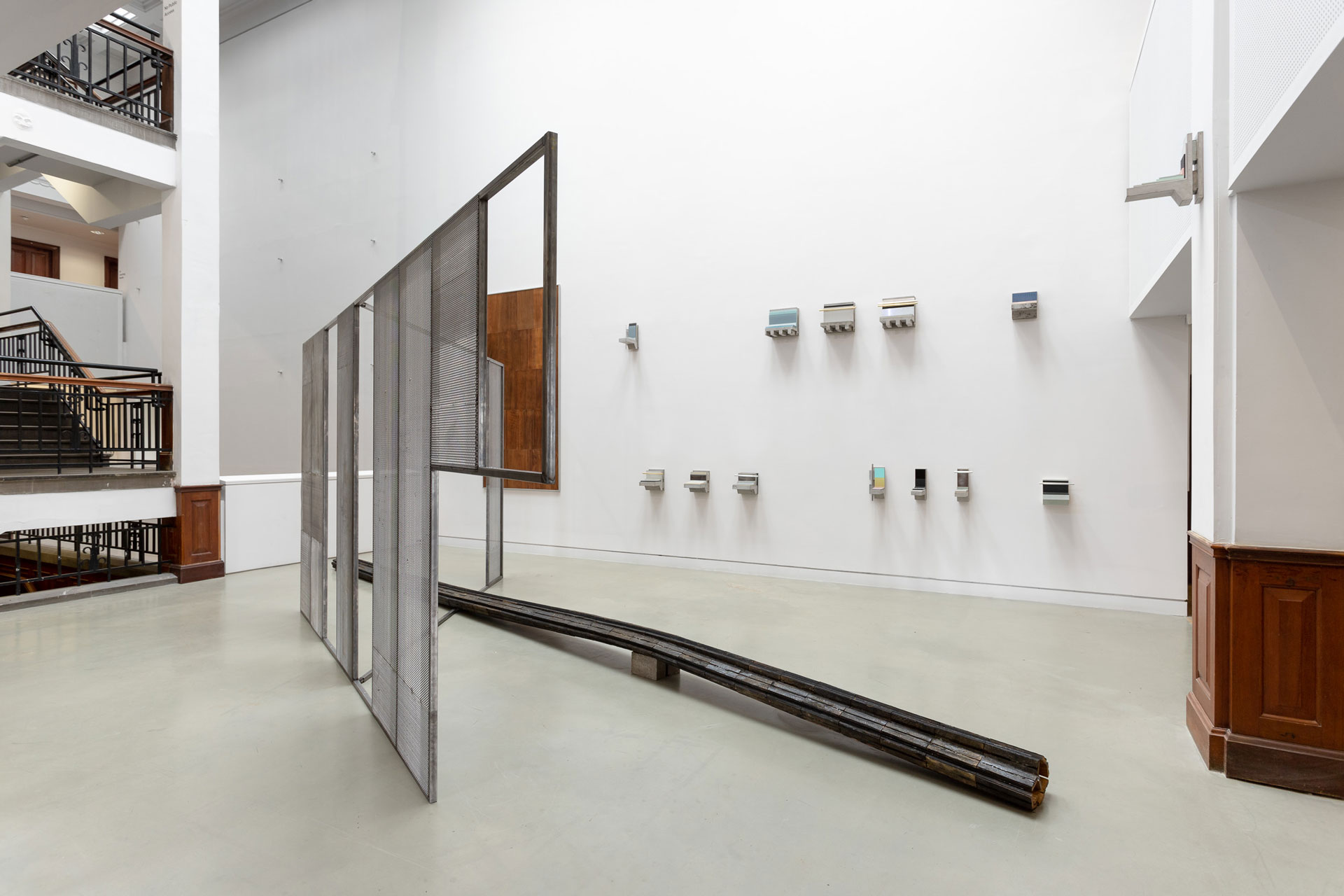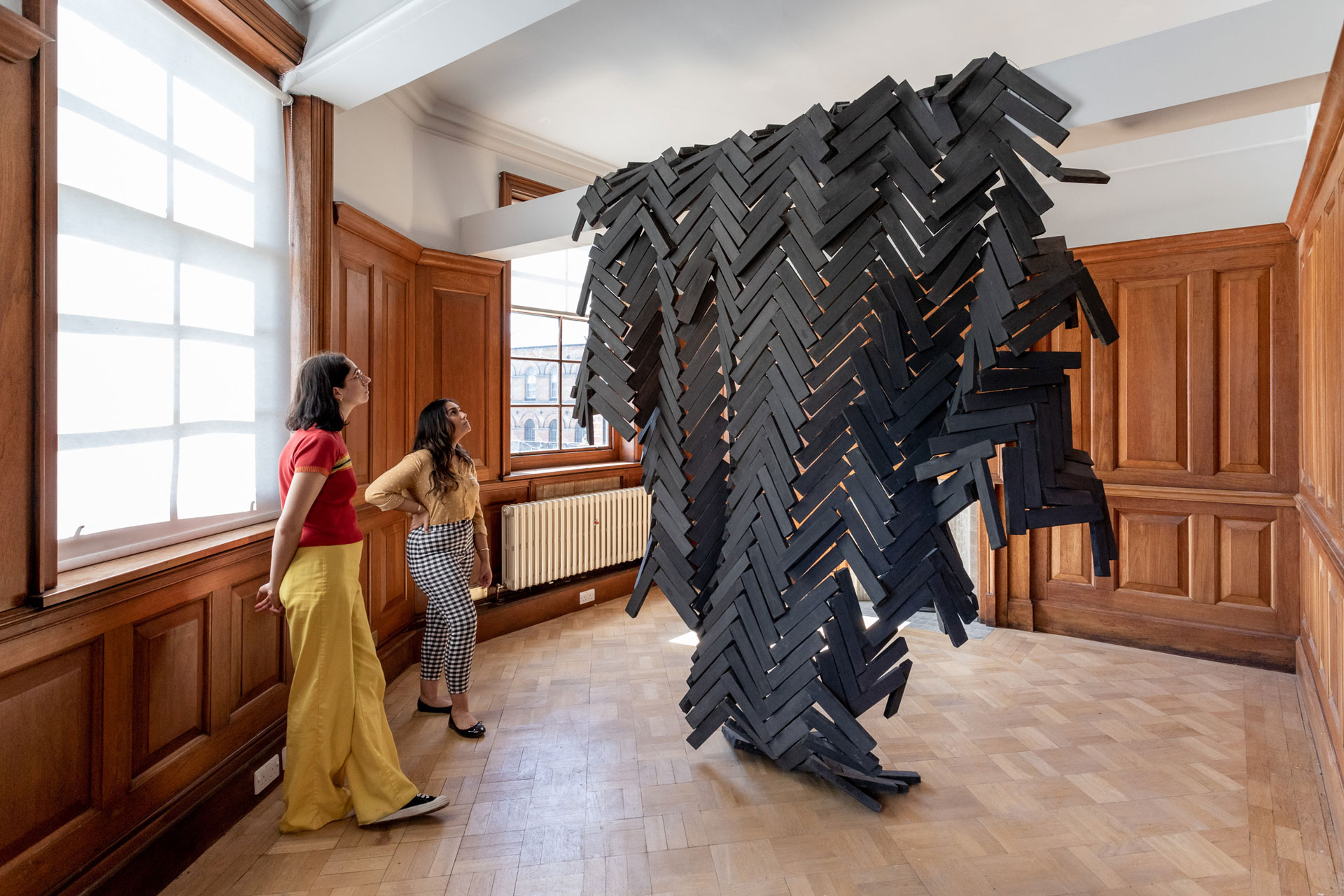The ambitious sculptural exhibition responded to The Tetley’s unique art deco architecture.
Often utilising reclaimed architectural materials, Neelova is interested in the way materials and architecture influence our sense of time and place. Her sculptures are created by employing tactics of ‘reverse archaeology’ – considering an alternative reading of human history by examining found objects and architectural debris, and transforming them beyond functionality. In this exhibition’s works the human body and touch remained a vestigial memory.
EVER brought together many of Nika Neelova’s sculptures for the first time. At the centre of the exhibition was a new large-scale sculptural installation in The Tetley’s atrium. Connecting with the building’s past, it recalled the restoration and transformation of the atrium into a gallery space and incorporated original materials such as parquet floor tiles and oak panelling salvaged from The Tetley building.
Featuring these discarded architectural fragments, the installation created a transitional space depicting, and derived from, places that once existed. For Neelova, it took the form of a ‘landscape in ruin’ via different layers of reworked and reimagined architectural, sculptural and geological artefacts.
In addition to the ambitious installation, EVER featured a number of existing geological and architectural sculptures, including Neelova’s Lemniscate sculpture series made from wooden bannisters reclaimed from old English houses awaiting demolition. The bannisters, which once acted as the meeting point between human body and architecture, were repurposed and fitted together so that they each formed an infinite loop. Also presented were Neelova’s Folded Room sculptures – foldable steel structures that replicated the perimeter of the artist’s studio – and Stratigraphies, a series of works that replicated the geological process of sedimentation with layers of studio residue and dust fixed in jesmonite.
EVER was supported by Arts Council England. A continuation of the project was later shown at Brighton CCA in 2020.

